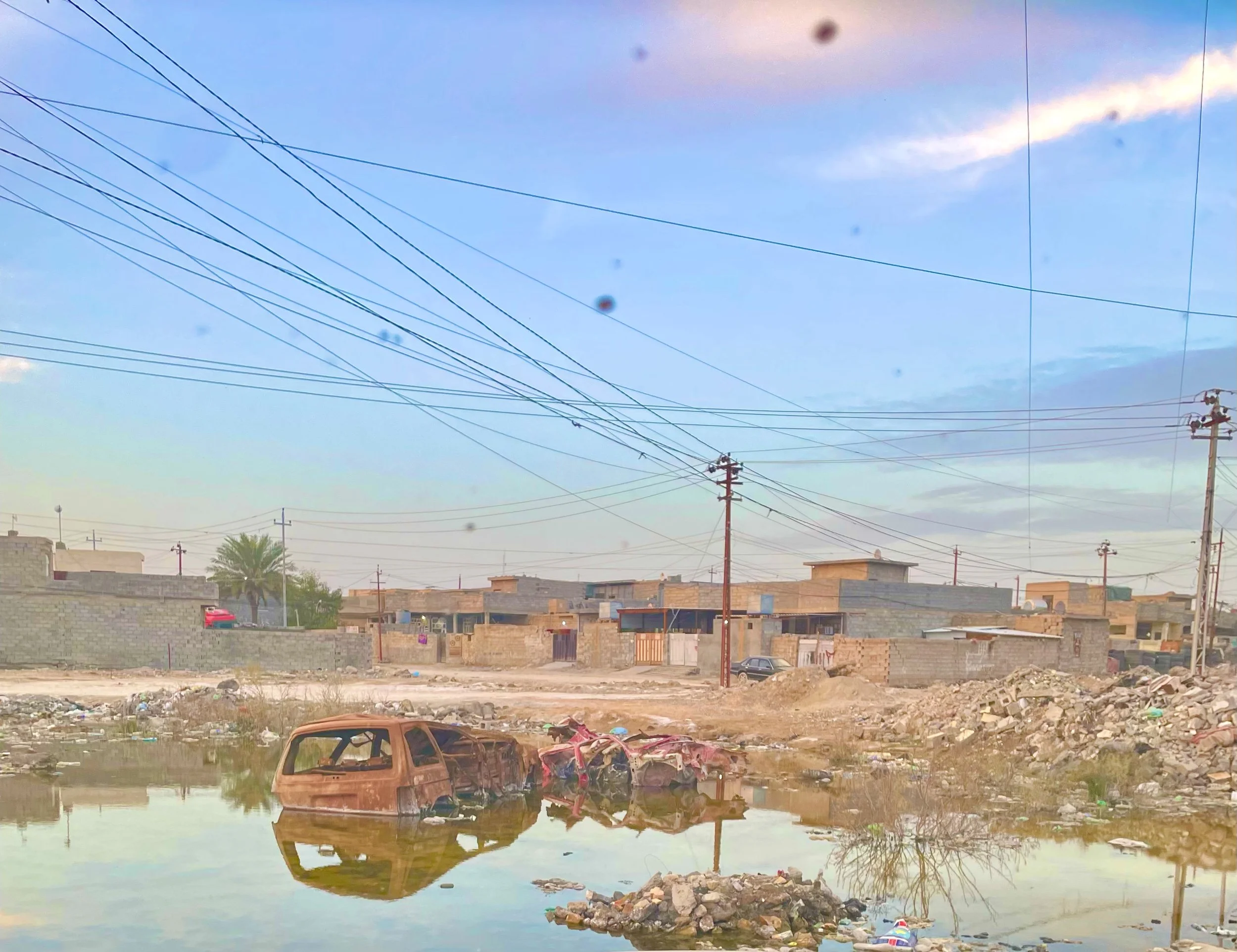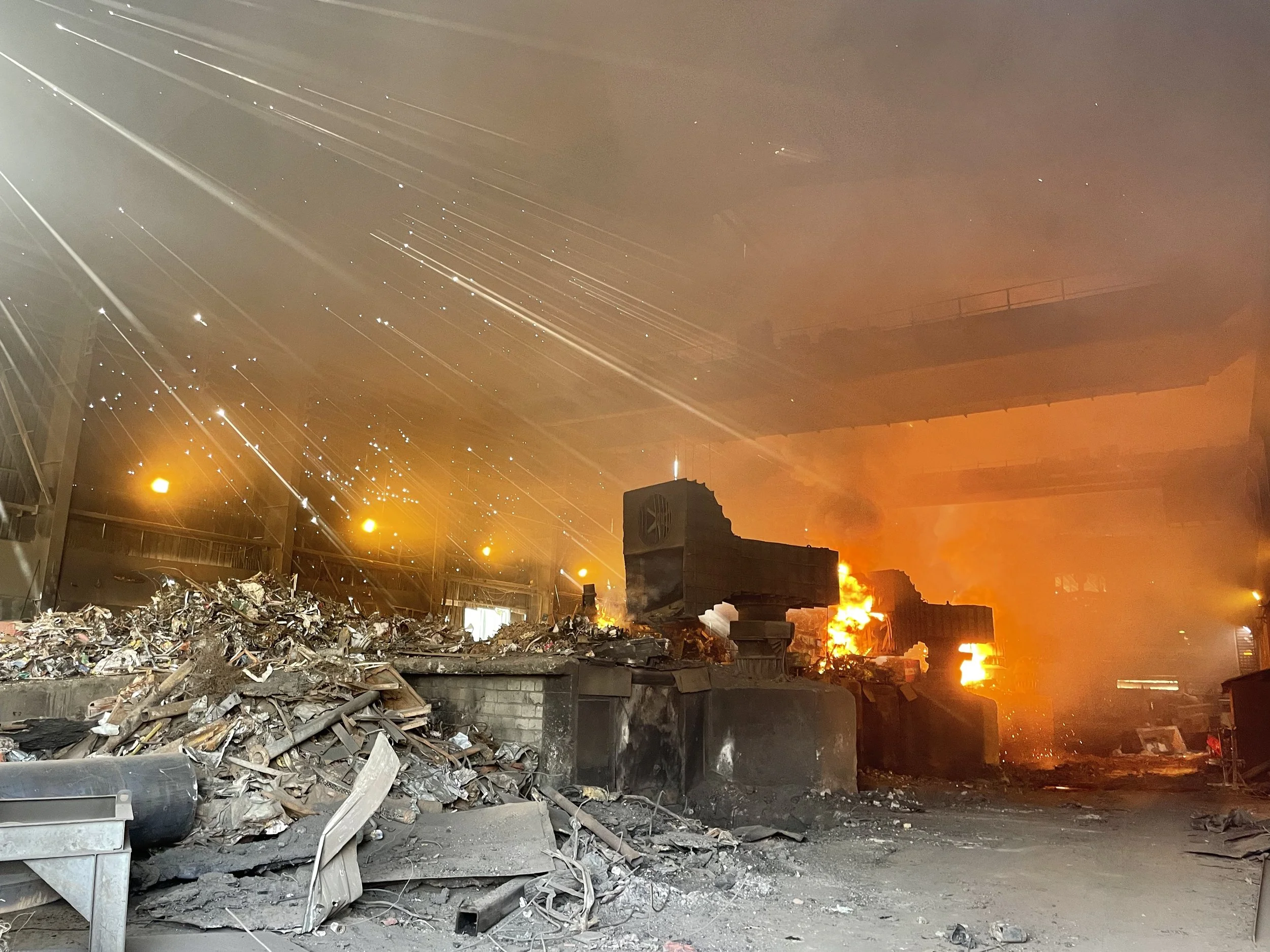IMMEASURABLE REVERBERATIONS OF WAR
Beyond the bounds of hegemonic frameworks, we must honor, center, and demonstrate those truths of war that are simply immeasurable.
-
Rubaii, Kali. “Templates for the Resurgency from Anbar, Iraq.” Chapter in Templates for Liberation by Rheim Alkadhi. Institute of Contemporary Arts, London. 2024.
Templates for Liberation PDF -
Rubaii, Kali. 2024. “Cement and Displacement: Material Life in the Wake of Extractive War.” American Ethnologist 52 (1): 31–43.
https://doi.org/10.1111/amet.13377
Displaced people have not escaped war and do not live apart from it. This is evident in the material life of internally displaced Iraqi farmers seeking refuge in a concrete construction site, downstream from a cement-processing plant in Iraqi Kurdistan. There, one family has repeatedly tried to build a traditional tannour (bread oven) out of unworkable, cement-infused materials in their environment. As their experience shows, physical brushes with the cement industry, rather than kinetic violence like bombs and battles, lie at the heart of what war is. Through ambiguously embracing cement's contaminating qualities, displaced people open a space to reckon with their predicament. -
Rubaii, Kali. 2023. “This Is Why We Protect the Rivers, This Is How We Love the Rivers.” Critical Times 6 (2): 195–201.
https://doi.org/10.1215/26410478-10437007
The Tigris and Euphrates Rivers are the sacred world-makers and life-sustainers of Iraq. At the same time, war has transformed them into toxified vectors of disease, death, and neglect. The “river protectors” (some of them identifying as activists, others not) strive to protect and repair their river ecologies from unjust destruction, even as they work under the shadow of prophecy that predicts the irreparable demise of these waterways. This essay explores how people love doomed rivers and what it means to pursue environmental repair and justice in the face of massive, irreversible harm. -
Rubaii, Kali. 2023. “Note the Ghosts: Among the More-than-Living in Iraq.” In War-torn Ecologies, An-Archic Fragments: Reflections from the Middle East, edited by Umut Yıldırım, 85–103. Berlin: ICI Berlin Press.
https://doi.org/10.37050/ci-27_4
A series of creative non-fiction short stories based on ethnographic interviews and participant observation in Iraq from 2014–2022, Kali Rubaii’s reflection asks: what is a toxic affect? In these stories, war-torn ecologies are packed with living and non-living beings that emerge in the floor of a mosque, in a graveyard, from a pillow, a toilet, and construction sites in Iraq. -
Rubaii, Kali. 2020. “Frozen Baby Story.” In Flash Ethnography, edited by Carole McGranahan and Nomi Stone. American Ethnologist website, October 26, 2020.
https://americanethnologist.org/features/collections/flash-ethnography/frozen-baby-story
“The most horrible thing that ever happened to me was the moment I tripped while walking down a frozen sidewalk in Amman, Jordan. I had not yet found the conceptual framing to articulate the confluence of war and climate change. I did not have words like “anthropocene” or “sociocide.” I only had words like “cold” and “war.”Syrians ran for their lives. Some set up camp on the hilly streets and sidewalks of the city. That year, it snowed heavily enough for Jordan to borrow a snowplow from Israel, without much outcry from the country’s Palestinian residents. Snow dampens sound. It suppresses, even, political dissent. Cold people, trapped people, hungry people, might consent to almost anything. That is why exposure is such a common element of torture. It is also, I think, why doctor’s offices are so cold.
I tripped. When I looked down, there was an infant frozen solid on the ground.”
-
Rubaii, Kali. 2023. “The Explosion.” Anthropology and Humanism 48 (2): 358–359.
https://doi.org/10.1111/anhu.12434
This ethnographic vignette, part of a special section on flash ethnography, describes the responses of bystanders and the security state to an explosion at a gas station in Fallujah, Iraq, during the author's fieldwork in 2021–2022.






